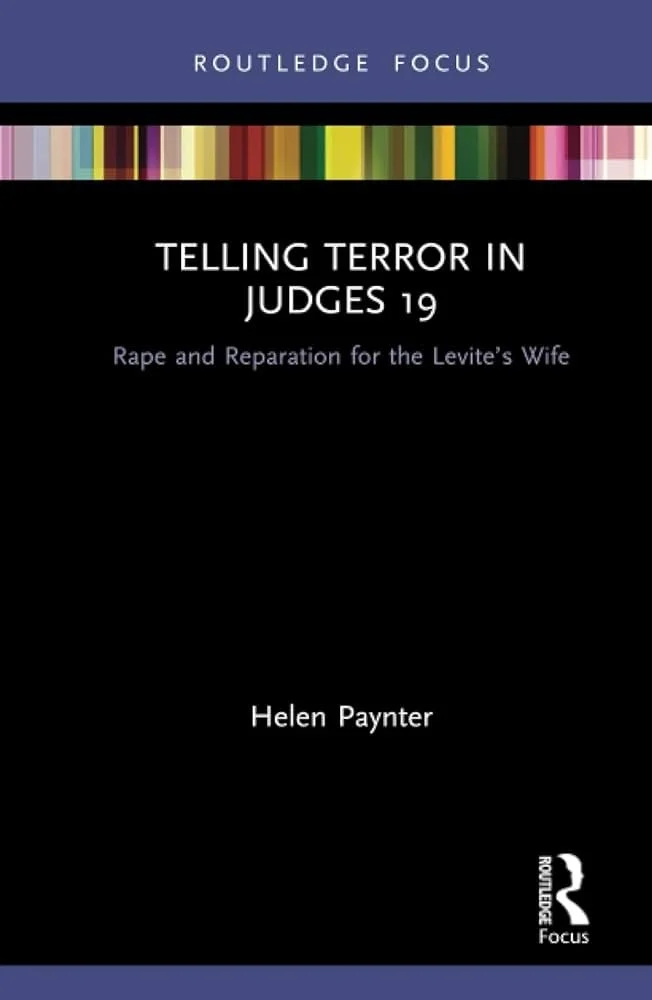Telling Terror in Judges 19: Rape and Reparation for the Levite's Wife by Helen Paynter
/REVIEWER: Charmaine Yip
BOOK: Telling Terror in Judges 19: Rape and Reparation for the Levite's Wife
(Routledge, June 2022) 100pp, paperback, RRP £18.99
The main subject of this book is the account of the gang-rape and murder of the Levite’s pilegesh (commonly translated concubine) in Judges 19. It is remarkably scholarly, analysing the text from various critical perspectives, yet engaging and deeply moving. The writer invites us to view the text through a reparative lens in which the ‘victim’ is shown to possess autonomy, agency and a voice, which speaks powerfully into our modern context.
The book begins by examining historic commentators, some of whom de-centralise Beli-Fachad (the name Paynter gives the pilegesh), by focusing for instance on ‘victim blaming’, or on the averted ‘homosexual’ rape of the Levite.’ The actual rape has been minimised with an overarching implied narrative that ‘she asked for it’! Paynter then examines feminist responses, one of whom explores how the narrator objectifies Beli-Fachad, depriving her of a voice and casting her in an ambiguous light.
Paynter then examines the passage through a reparative lens highlighting Beli-Fachad’s agency and autonomy. For example, she proactively leaves her husband and returns to her paternal home, and her husband sets out to reason with her to return. More, Beli-Fachad speaks: she speaks through the affect she engenders; by the graphic scenes we infer from the narrative and the visceral response it evokes in us. ‘Her agony speaks.’
What I really liked about this book is how clearly Paynter highlights the relevance of the biblical story to contemporary culture. There are striking parallels, with an incident which occurred in Delhi in 2012, when a young woman called Jyoti Singh, was gang-raped on a bus. At the time, the Indian press gave Jyoti the name “Nirbhaya”, (meaning fearless), and it is this name which Paynter gives the pilegesh. Beli-Fachad is Hebrew for ‘Fearless One’ Paynter also shows how Beli-Fachad’s depersonalisation and silencing resonate with the experiences of women who are sex-trafficked, exploited in violent pornography or otherwise abused.
One of the chief questions we might ask when wrestling with Judges 19 is, ‘Why is it in the Bible?’ Paynter shows us that it’s in the Bible because God cares deeply about the victims of gender-based violence and exploitation, and if God cares, we should too. This book is a good starting point to engage more deeply with the text and surrounding issues, to talk about and preach about them, and to reach out with compassion to victims.
Reviewer: Charmaine Yip
Charmaine Yip writes for Preach magazine, occasionally preaches short sermons for Premier Radio, and is the 2022 winner of Sermon of the Year.


